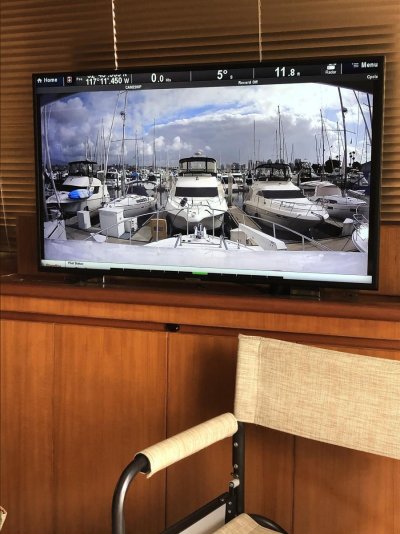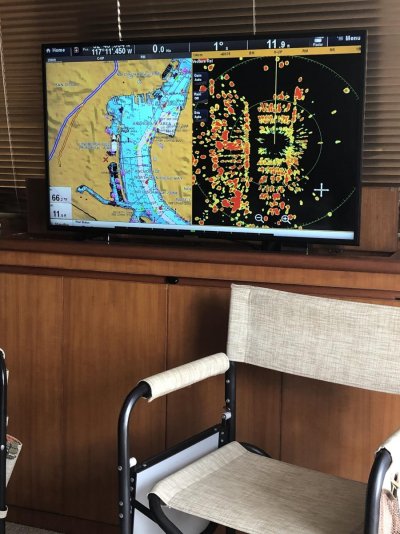psneeld
Guru
RADAR use if fitted it NOT mandatory as far as I know....it is up to the captain and his definition of "prevailing circumstances". The USCG addresses it in the NAVRULES FAQs. Even though the one sentence says you must use it, the rest of the discussion is contradictory and is NOT what the rule actually says (thus the "must" is really opinion in this writing, not law).
11. Am I required to have Radar? Radar is not required on vessels under 1600 GT (33 CFR 164.35), however, Rule 7 states that proper use shall be made of radar equipment if fitted and operational. In other words, whoever has one must use it. The Navigation Rules are not meant to discourage the use of any device, rather they expect prudent mariners to avail themselves of all available means appropriate...as to make full appraisal of the situation (Rule 5), e.g. the use of radar. At issue is whether the use of radar is appropriate in the prevailing circumstances and that is a determination made by the Master; and, ultimately decided by a trier of fact.
Should you be in a collision how would a judge/jury rule on your contention that the use of radar was impracticable (due to electrical drain, crew shortages, etc.)? Also, if a collision does occur, then there was obviously a risk of collision beforehand. Could the determination of that risk have been made sooner with the use of radar? It is difficult to answer such questions because the circumstances of each case are different.
More importantly, remember that Rule 7 specifies that assumptions shall not be made on the basis of scanty information, especially scanty radar information.
https://www.navcen.uscg.gov/?pageName=navRulesFAQ#0.3_11
11. Am I required to have Radar? Radar is not required on vessels under 1600 GT (33 CFR 164.35), however, Rule 7 states that proper use shall be made of radar equipment if fitted and operational. In other words, whoever has one must use it. The Navigation Rules are not meant to discourage the use of any device, rather they expect prudent mariners to avail themselves of all available means appropriate...as to make full appraisal of the situation (Rule 5), e.g. the use of radar. At issue is whether the use of radar is appropriate in the prevailing circumstances and that is a determination made by the Master; and, ultimately decided by a trier of fact.
Should you be in a collision how would a judge/jury rule on your contention that the use of radar was impracticable (due to electrical drain, crew shortages, etc.)? Also, if a collision does occur, then there was obviously a risk of collision beforehand. Could the determination of that risk have been made sooner with the use of radar? It is difficult to answer such questions because the circumstances of each case are different.
More importantly, remember that Rule 7 specifies that assumptions shall not be made on the basis of scanty information, especially scanty radar information.
https://www.navcen.uscg.gov/?pageName=navRulesFAQ#0.3_11
Last edited:



